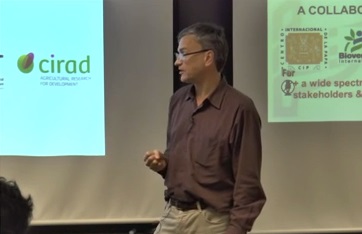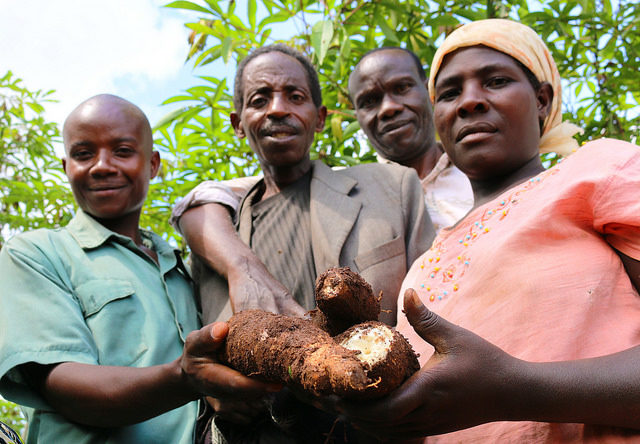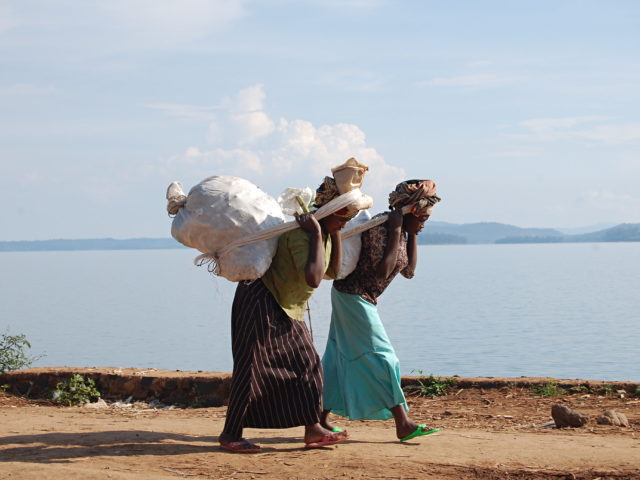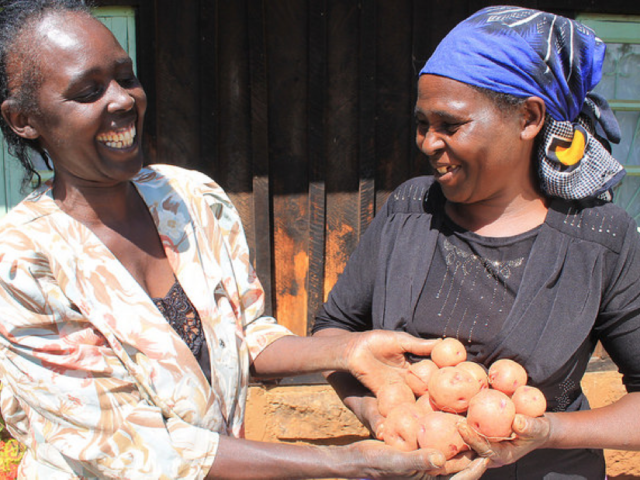Graham Thiele, RTB Director, visited Cornell University in October at the invitation of Hale Tufan, Project Manager for the NEXTGEN Cassava project. With contributions from Hale, Netsayi Mudege, gender research coordinator for RTB and Putri Ernawati Abidin, CIP researcher, Graham presented a seminar on gender and its implications for breeding which you can watch here.
Application of genomics holds out huge promise for more targeted breeding of RTB crops by helping us to identify the traits to be included in a new variety from a breeding population, and target these traits more precisely. But unless we can capture the demand for more elusive quality traits such as poundability in yam, many of which are gender differentiated, then we run the risk that new high yielding varieties will be ill-suited to end user needs, and thus not be adopted.
As Jean-Luc Jannink, Cornell expert on genomic selection pointed out, next generation breeding “gets you where you want to go faster”. If quality traits are not captured in next generation breeding, we could simply get to the wrong place faster. We also need to consider the way in which new processing technology may inadvertently displace women from key income earning opportunities in value chains such as gari in West Africa. And choices about this technology are linked to varietal development. So we need to think about this technology mix in ensuring that at least we don’t make women worse off as innovation occurs, and hopefully we can influence research to actually improve gender equity.



